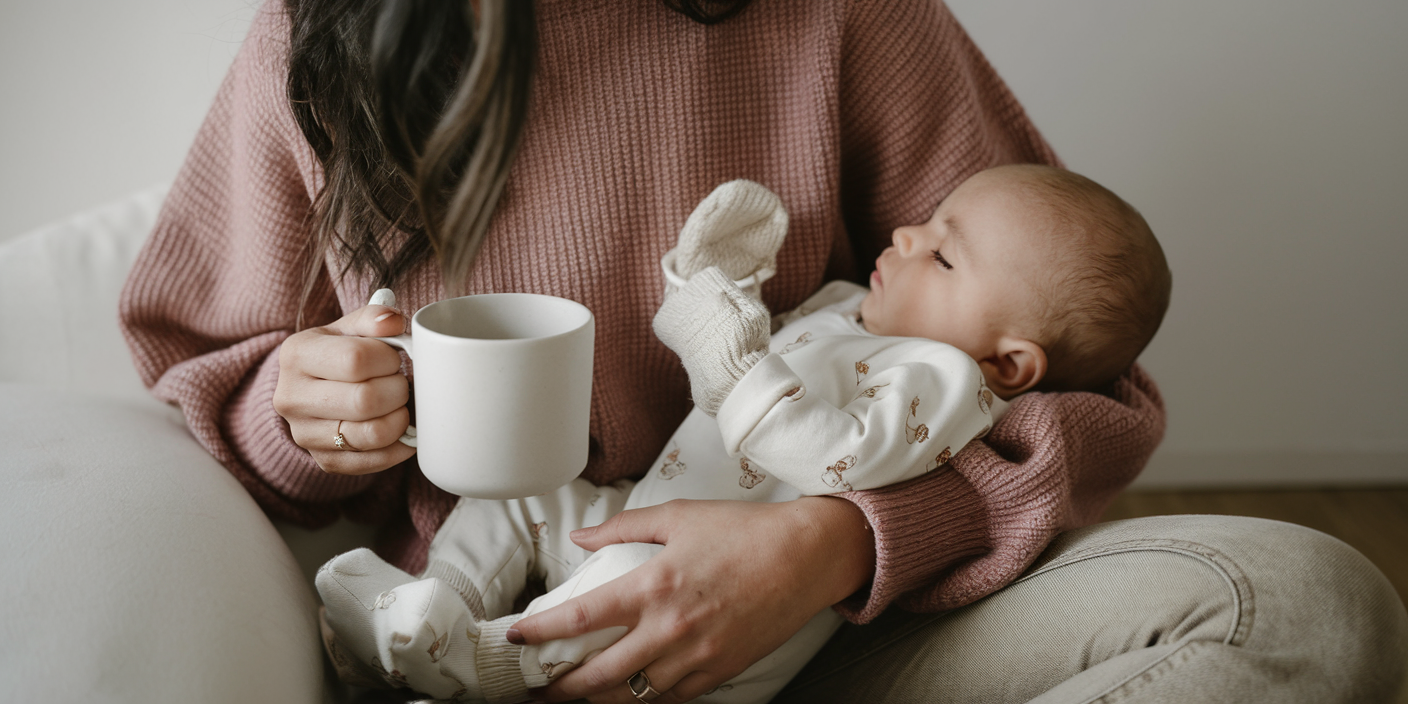
How to lose weight while breastfeeding?
Pregnancy and childbirth are monumental life events, and the journey back to your pre-pregnancy body can feel overwhelming. For many new moms, one of the most common concerns after giving birth is how to lose the weight gained during pregnancy. The challenge becomes even more complex when breastfeeding is involved. Many wonder: Is it safe to lose weight while breastfeeding? When should I start? What’s the right approach? Let’s break it all down to help you navigate this exciting yet challenging time.
Can You Lose Weight While Breastfeeding?
Yes, you can lose weight while breastfeeding, but it’s important to do so in a healthy, sustainable way.
Breastfeeding actually helps you burn extra calories — on average, breastfeeding can burn about 300-500 extra calories per day. However, this doesn’t mean that you should rush into dieting right away. The process of weight loss while breastfeeding involves balancing your nutritional needs for both you and your baby. Remember, your body is still healing from childbirth, and your primary focus should be on recovery and providing adequate nutrition for your baby.
While breastfeeding does naturally promote weight loss, it’s important to approach this phase with patience and realistic expectations. Every mother’s body is different, and what works for one may not work for another.
What Factors Affect Weight Loss While Breastfeeding?
Several factors influence how quickly you can lose weight after pregnancy while breastfeeding:
- Hormones: Postpartum hormonal changes can affect metabolism and how your body stores fat. These hormonal shifts are a natural part of the recovery process and can slow down weight loss. For instance, prolactin, the hormone responsible for milk production, can affect fat storage.
- Diet: What you eat matters. Opting for nutrient-dense foods rather than calorie-restricted or fad diets will provide the energy your body needs to produce milk and heal. A balanced diet with a variety of whole foods will keep you nourished without depriving you of the nutrients necessary for recovery.
- Breastfeeding Frequency: The more often your baby feeds, the more calories you burn. However, it’s also important to note that the composition of breast milk changes over time, and it may take longer to lose weight if your baby is older and breastfeeding less frequently.
- Metabolism: Your metabolic rate plays a role in how quickly you burn calories. Some women may experience a faster metabolism postpartum, while others might find their metabolism slows down as the body focuses on breastfeeding and recovery.
When Should You Start Dieting After Pregnancy?
The best time to start focusing on weight loss is after your postpartum checkup — usually around 6 weeks.
During the first few weeks after childbirth, your body needs time to heal. It’s crucial to focus on your recovery, establish a breastfeeding routine, and adjust to life with your newborn. The postpartum period is a time for your body to rest, rebuild, and nourish your baby, and trying to lose weight too soon could compromise your health and milk supply.
Once you receive the green light from your healthcare provider at your 6-week postpartum checkup, you can start considering healthy changes to your diet and exercise routine. However, be mindful that any weight loss efforts should still prioritize your health and the needs of your baby, especially in the early stages of breastfeeding.
What Should You Do for Healthy Weight Loss While Breastfeeding?
Eat Nutrient-Dense Foods: Focus on foods rich in vitamins and minerals. Choose lean proteins (like chicken, fish, and legumes), whole grains (such as oats, quinoa, and brown rice), healthy fats (like avocado, nuts, and olive oil), and plenty of fruits and vegetables.
Hydrate: Staying hydrated is essential for both milk production and overall health. Aim to drink at least 8 glasses of water per day, and more if you’re breastfeeding regularly.
Exercise Lightly: After getting the go-ahead from your healthcare provider, begin incorporating moderate exercise into your routine. Walking, swimming, or gentle yoga are great options for postpartum moms. Start slow and gradually increase intensity as your body allows.
Don’t Skip Meals: Make sure you’re eating regularly. Skipping meals or drastically cutting calories can negatively affect your milk supply and your energy levels. Aim for 3 balanced meals a day with healthy snacks in between to keep your energy up and provide your body with the nutrients it needs.
Sleep and Rest: While it’s challenging with a newborn, try to get enough sleep and rest. Lack of sleep can hinder weight loss and overall health. Rest also supports your body’s recovery and helps keep stress levels low.
What Should You NOT Do When Trying to Lose Weight While Breastfeeding?
Avoid Extreme Dieting: Extreme calorie restrictions or fad diets can hurt your health and your milk supply. Remember that losing weight too quickly can also lead to nutrient deficiencies, which can affect both you and your baby.
Don’t Skip Breastfeeding: Breastfeeding burns calories and supports your baby’s health, so continue breastfeeding unless medically advised otherwise. Skipping breastfeeding sessions in an attempt to lose weight will not benefit your weight loss journey.
Don’t Over-exercise Too Soon: It’s tempting to jump back into a rigorous workout routine, but your body needs time to recover. Over-exercising too soon can lead to injury, increased fatigue, and reduced milk supply. Start with light exercise and gradually increase intensity.
Don’t Compare Your Journey to Others: Every woman’s body is different. What works for one mom may not work for you. Be patient and kind to yourself as you navigate your postpartum journey.
The Role of Mental Health in Weight Loss After Pregnancy
It’s important to acknowledge that your mental well-being plays a huge role in your ability to lose weight after pregnancy. Stress and anxiety can make it more difficult for your body to shed excess weight, so maintaining a positive and balanced mindset is crucial.
Be patient with yourself. Celebrate small victories, whether it’s finding a workout routine that fits into your new schedule or simply eating a balanced meal. If you’re struggling with stress or negative body image, consider seeking support from a therapist or joining a postpartum support group. Your mental health is just as important as your physical health!
Losing weight after pregnancy while breastfeeding is a gradual process. By focusing on nourishing your body with whole foods, staying hydrated, getting adequate rest, and incorporating light exercise, you’ll be setting yourself up for long-term health. But remember, the most important thing is to listen to your body, take it one step at a time, and seek professional guidance when needed. Prioritize your well-being, and the weight loss will follow in time.
You’ve got this, mama! 🌟

